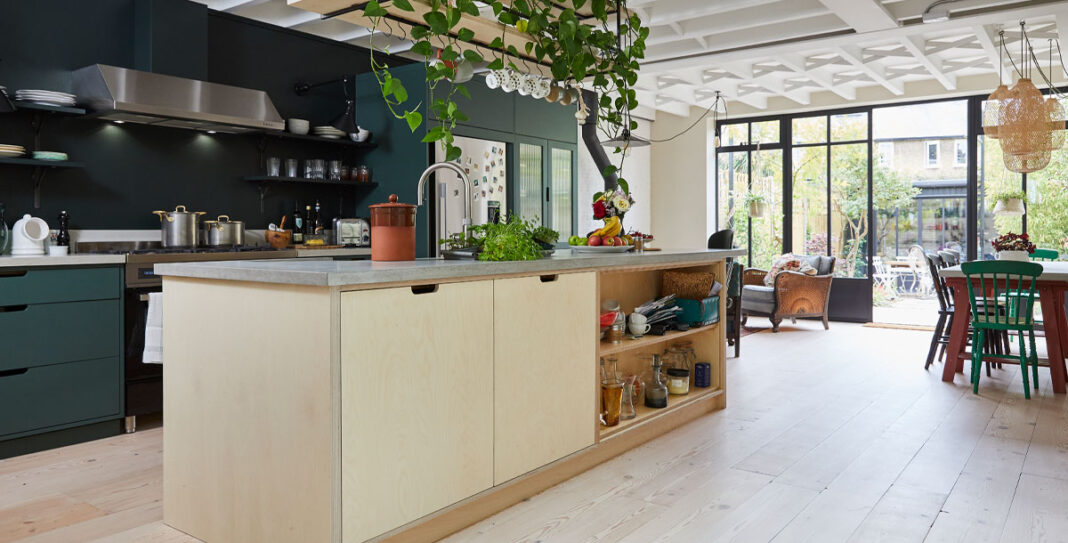Eco-Friendly Kitchens: Redesigning Spaces with Sustainability in Mind
In today’s world, where environmental consciousness is on the rise, eco-friendly kitchens have become a significant trend in home design. These kitchens are not only aesthetically pleasing but also contribute to a sustainable lifestyle. So, what exactly defines an eco-friendly kitchen?
Essentially, it’s a kitchen space that prioritizes sustainability in its design, materials, and operations. From energy-efficient appliances to water-saving fixtures, every aspect of an eco-friendly kitchen is geared towards minimizing environmental impact while maximizing efficiency.
Choosing Sustainable Materials
One of the fundamental aspects of creating an eco-friendly kitchen is the choice of materials. Opting for recycled materials, such as reclaimed wood or recycled glass countertops, is not only environmentally responsible but also adds a unique charm to the kitchen. Additionally, using renewable resources like bamboo for cabinetry and flooring can further enhance the sustainability quotient of the space.
Energy-Efficient Appliances
The kitchen is often considered the heart of the home, and it’s also one of the most energy-intensive areas. However, with the advent of energy-efficient appliances, homeowners can significantly reduce their carbon footprint without compromising on functionality. Investing in appliances with high Energy Star ratings and innovative features like induction cooktops and convection ovens can make a substantial difference in energy consumption.
Water Conservation Strategies
Water is a precious resource, and conserving it is paramount in sustainable kitchen design. By installing water-saving fixtures such as low-flow faucets and aerators, homeowners can minimize water wastage without sacrificing performance. Additionally, adopting simple habits like fixing leaks promptly and using dishwasher and washing machine cycles wisely can further contribute to water conservation efforts.
Maximizing Natural Light
Natural light not only brightens up a space but also has numerous benefits for both physical and mental well-being. In eco-friendly kitchens, maximizing natural light is a key design strategy. This can be achieved by strategically placing windows, skylights, and glass doors to allow ample sunlight to flood the space. Not only does this reduce the need for artificial lighting during the day, but it also creates a warm and inviting atmosphere.
Composting and Waste Management
Proper waste management is essential in any sustainable kitchen. Incorporating composting into daily routines allows homeowners to divert organic waste from landfills and create nutrient-rich soil for gardening. Additionally, implementing effective waste sorting and recycling systems ensures that materials are disposed of responsibly, further minimizing environmental impact.
Plant-Based Kitchen Design
With the growing popularity of plant-based diets, many homeowners are incorporating elements of nature into their kitchen design. From indoor herb gardens to hanging planters, greenery adds a fresh and vibrant touch to eco-friendly kitchens. Not only does this enhance the aesthetics of the space, but it also promotes a connection to nature and healthier living.
Reducing Carbon Footprint in Kitchen Operations
Cooking accounts for a significant portion of household energy consumption. However, there are several ways to reduce the carbon footprint associated with kitchen operations. Simple practices such as using lids while cooking, matching pot sizes to burner sizes, and choosing energy-efficient cooking methods can all contribute to energy savings over time. Additionally, minimizing food waste through proper storage and meal planning helps reduce greenhouse gas emissions associated with food production and disposal.
Smart Technology Integration
In the age of smart homes, technology plays a crucial role in creating eco-friendly kitchens. From smart thermostats that optimize energy usage to Wi-Fi-enabled appliances that can be controlled remotely, the possibilities are endless. Smart technology not only enhances convenience but also helps homeowners monitor and manage their energy and water consumption more efficiently.
Certifications and Labels to Look For
When selecting products for an eco-friendly kitchen, it’s essential to look for certifications and labels that indicate environmental responsibility. Whether it’s Energy Star for appliances, Forest Stewardship Council (FSC) for wood products, or WaterSense for plumbing fixtures, these certifications provide assurance that the products meet stringent sustainability standards.
DIY Eco-Friendly Kitchen Upgrades
Creating an eco-friendly kitchen doesn’t have to break the bank. There are plenty of budget-friendly DIY projects that homeowners can undertake to make their kitchen more sustainable. From upcycling old furniture to repurposing mason jars for storage, creativity is key when it comes to eco-friendly upgrades.
Kitchen Renovations
If you’re considering a kitchen renovation, it’s the perfect opportunity to incorporate eco-friendly features into your design. From energy-efficient appliances to sustainable materials and smart technology, there are countless ways to make your kitchen renovation project both stylish and environmentally responsible.
Educating Homeowners on Sustainable Practices
Education plays a crucial role in promoting sustainable practices in the kitchen. By providing homeowners with resources and information on topics such as energy conservation, waste reduction, and green cleaning alternatives, they can make informed decisions that benefit both the environment and their wallets.
Benefits of Eco-Friendly Kitchens
The benefits of eco-friendly kitchens extend far beyond environmental conservation. By embracing sustainability in kitchen design and operations, homeowners can enjoy lower utility bills, healthier indoor air quality, and a greater sense of pride in their contribution to a greener future.
Challenges and Solutions
While transitioning to an eco-friendly kitchen may pose challenges, such as higher upfront costs and limited product options, there are solutions available to overcome these obstacles. Whether it’s exploring financing options for energy-efficient upgrades or partnering with eco-conscious brands, homeowners can find ways to make their sustainable kitchen dreams a reality.
Conclusion
In conclusion, eco-friendly kitchens are not just a trend but a necessity in today’s world. By redesigning kitchen spaces with sustainability in mind, homeowners can create functional, beautiful, and environmentally responsible environments for cooking, dining, and gathering with loved ones. From choosing sustainable materials to embracing energy-efficient technologies, every decision counts in building a greener future, one kitchen at a time.
